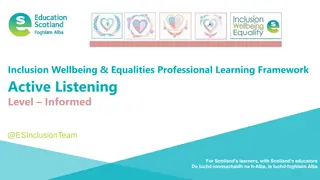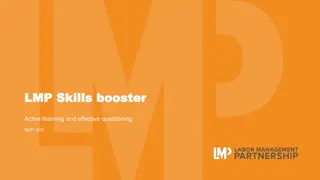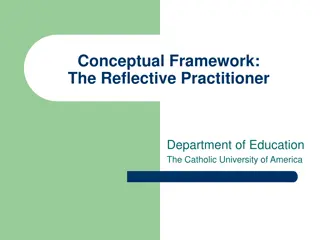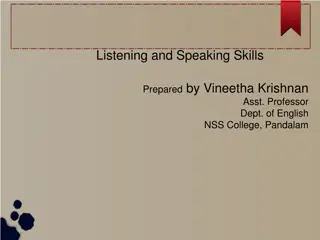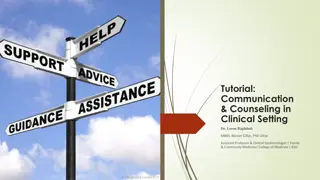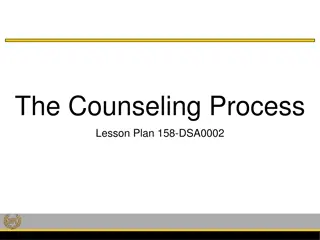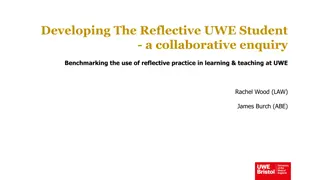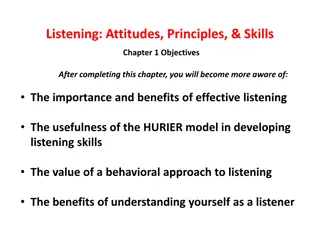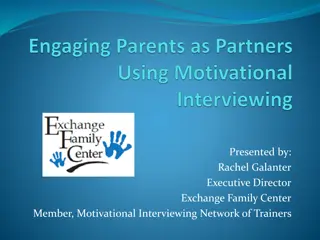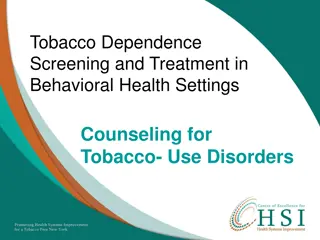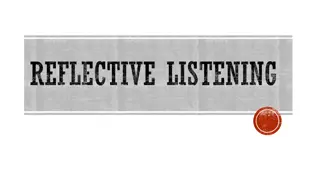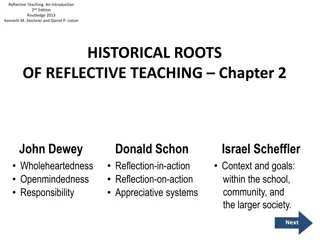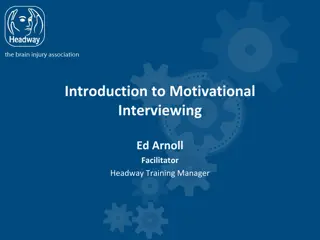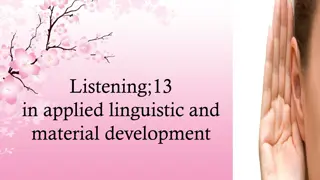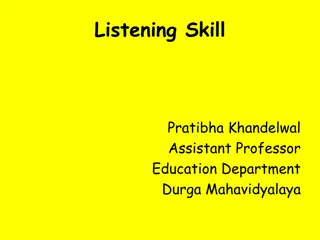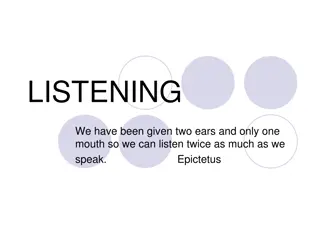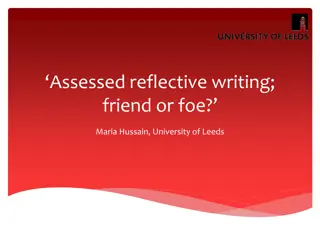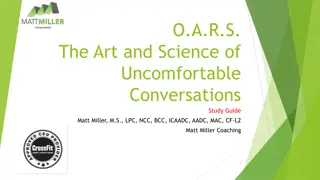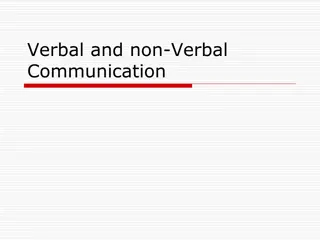Understanding Reflective Listening Techniques in Motivational Counseling Training
Reflective listening involves active listening, observing, and interpreting verbal and nonverbal cues to understand the speaker's thoughts and feelings. It includes levels of reflection such as simple rephrasing, complex paraphrasing, reflection of feeling, double-sided reflection, and summarizing to convey empathy and understanding in counseling sessions.
- Reflective Listening
- Counseling Training
- Communication Skills
- Motivational Counseling
- Understanding Clients
Download Presentation

Please find below an Image/Link to download the presentation.
The content on the website is provided AS IS for your information and personal use only. It may not be sold, licensed, or shared on other websites without obtaining consent from the author. Download presentation by click this link. If you encounter any issues during the download, it is possible that the publisher has removed the file from their server.
E N D
Presentation Transcript
Reflective Listening Module 3 Motivational counseling training Country, Year
Reflections Are statements Require listening, observing, interpreting verbal and nonverbal cues Listener tries to understand using reflective statements Helps gather information
The Listening Diagram LISTENING What I hear What I say Client Provider What I What I feel/mean understand REFLECTING
Reflection verbal cues So you feel What I hear is that you You re wondering if It sounds like
Levels of reflection: simple Rephrasing Substitutes synonyms or phrases, stays close to original statement, captures basic meaning
Levels of reflection: complex Paraphrasing (finishing the paragraph) Makes a major restatement in which the speaker s meaning is inferred Reflection of feeling Emphasizes emotional aspects of communication Double-sided reflection Presents two sides of an issue: On the one hand you , on the other hand you Summarizing Reflects multiple points the speaker has made, tying them together
Reflecting feelings Client: I don t know if I can tell my wife about my HIV status. Provider: It sounds like you re worried about what might happen if you disclose to your wife.
Double-sided reflection Client: I know I d feel better about myself if I exercised, but I m tired after work, and I have so little time. Joining a gym is expensive, and I would probably end up eating a lot anyway when I get home because I ll be so hungry. Provider: On the one hand, exercise would cost you both time and money, but on the other hand, you might have more energy and feel better.
Summarizing Client: I need to find a new job something that challenges me, with better pay. And I plan to start exercising again I ve been getting so big that none of my clothes fit. If I were in better shape, I might find a boyfriend. I m happy with my social life otherwise. I ve got lots of friends, I just wish I could spend more time with them. They are always inviting me to do things, but I have to work late most days. I think a better job might help with that something that would require fewer hours. When I see my friends, they re always smoking, which makes it hard for me to quit. That s one thing I definitely need to change I want to get serious about giving up smoking. I know it s really starting to hurt my health. Sometimes I can t even climb the stairs without losing my breath though I guess that could also be because I haven t been exercising.
Summary Provider: So not long from now, you re hoping to be in a new job that lets you see your friends more, and that you ll be exercising and getting in better shape. You mentioned getting a boyfriend, and you also said you want to get serious about quitting smoking. Did I get that right?
Benefits of reflective listening Counselor: Expresses empathy (respect/acceptance of client s feelings) Conveys a willingness not to judge Clarifies misunderstandings about what client has said Client Feels understood Is encouraged to provide additional information Is able to articulate thoughts and feelings Becomes more aware of what they are thinking/feeling
Empathetic statements do not Order, direct or warn Give advice or provide unsolicited opinions What I would do is Convey moral instruction or preach Contain words such as should or ought Or right or wrong
Reflections script Raise your hand when you hear one of the types of reflections discussed in the training.


